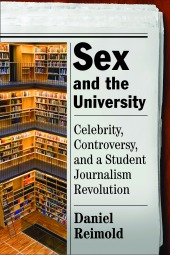Wide receiver and return specialist Bryant Eteuati played in a game for Weber State University’s football team last Saturday. His return to the field marked the end of a journalistic drama that started about a month before, immediately after his arrest on outstanding warrants for aggravated assault that he’d accrued for hitting people with his car.
The Signpost student newspaper at Weber State broke the story, even informing the football team’s coaches when a staffer called them for a comment on Eteuati’s arrest. Student journalism at its finest! And people were pissed, seemingly because they believed if the paper had not run the story Eteuati would not have been suspended.
Part a local TV news report at the time:
The university’s student paper is taking heat from some fans for breaking the story. . . . School policy says athletes facing charges like that don’t play. But some fans didn’t see it like that, and when Eteuati was suspended right before a big game, they blamed The Signpost. The comments, many aimed at [editor in chief Jessica] Schreifiels, poured in. Things like: ‘She makes me irate, and she needs to think about more than just herself when she writes. This movement that the football team is in is way bigger then her and her career.’
This past month, the paper admirably stuck to its editorial guns, covering every aspect of the student-athlete’s case (from its initial postponement to Eteuati’s not-guilty plea to the plea bargain that concluded it) and its implications for the football team.
In a staff editorial run soon after the angry fan lashing had commenced, editors wrote:
The Signpost did not get Bryant Eteuati suspended. Bryant Eteuati got Bryant Eteuati suspended. . . . As sad as this truly is, Eteuati did this to himself. The Signpost in no way, shape or form tried to smear him or the football team because of some personal vendetta. We reported the facts. It would have been unethical of us if we didn’t. . . . This was textbook journalism.
















